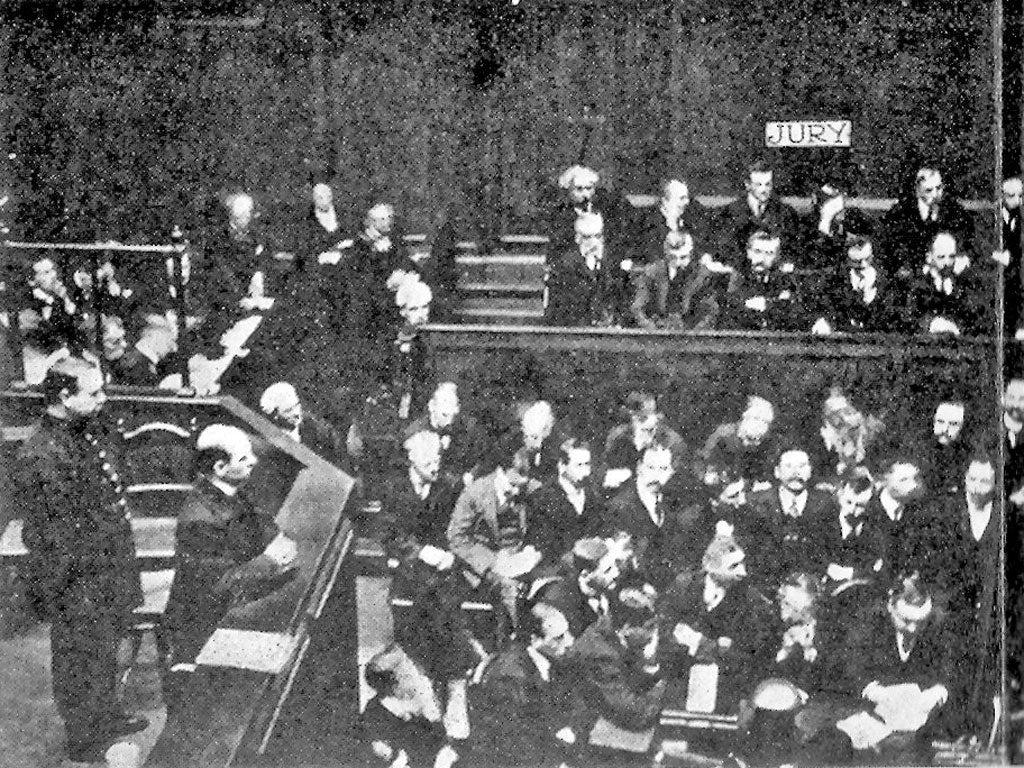Courtroom cameras 'risk turning trials into a circus'
Critics fear the trivialising of court hearings, making them a US-style media spectacle

Your support helps us to tell the story
From reproductive rights to climate change to Big Tech, The Independent is on the ground when the story is developing. Whether it's investigating the financials of Elon Musk's pro-Trump PAC or producing our latest documentary, 'The A Word', which shines a light on the American women fighting for reproductive rights, we know how important it is to parse out the facts from the messaging.
At such a critical moment in US history, we need reporters on the ground. Your donation allows us to keep sending journalists to speak to both sides of the story.
The Independent is trusted by Americans across the entire political spectrum. And unlike many other quality news outlets, we choose not to lock Americans out of our reporting and analysis with paywalls. We believe quality journalism should be available to everyone, paid for by those who can afford it.
Your support makes all the difference.Plans to allow cameras into courtrooms would risk turning trials into media circuses and could jeopardise defendants' safety, ministers were warned last night by a leading solicitor.
The legal profession gave a mixed reception to yesterday's disclosure in The Independent that the Government is about to announce moves to lift the blanket ban on broadcasting from courts.
Under its plans, to be set out in the Queen's Speech in May, television cameras will only be permitted to record judges' summing up and passing sentence. Broadcasters will not be allowed to film witnesses, defendants or barristers or to show the moment verdicts are returned. The new rules would initially cover only the Court of Appeal, with a view to extending broadcasting to the Crown Court.
But critics fear the move risked trivialising court proceedings by turning them into an American-style media spectacle. Julian Young, the senior partner at a London law firm, said: "I don't think it's a very clever idea. Even in a limited form there may be dangers. It may become a circus – this is too serious an issue for that to happen."
He said there were problems to be addressed, such as why defendants who are ultimately cleared should have parts of their trials shown on television.
"Someone who is innocent may not want to have their trial broadcast because there may be something embarrassing about them they don't want on television," he said. Mr Young added that there would also be a risk to the safety of offenders – many of whom are vulnerable – if their problems were aired on news bulletins. "If they are sent to prison they could end up stabbed, beaten up or killed as a result of what's been seen on television." The Bar Council, which represents barristers in England and Wales, said it broadly supported the broadcasting of judgments in the Court of Appeal.
But it added that it had "very considerable reservations" about any extension to Crown Courts, where it said judges' sentencing remarks should only be filmed in exceptional circumstances.
The Master of the Rolls, Lord Neuberger, the second most senior judge in England and Wales, has argued for some Court of Appeal hearings to be televised, as long as the judge hearing the case had "full rights of veto over what could be broadcast". The Tory MP John Whittingdale, the chairman of the culture select committee, whose hearings into allegations of newspaper hacking were filmed, said it was "completely inevitable" that filming would soon be extended.
The Government is likely to win political support for allowing cameras into courts, potentially from 2015. Legislation would be needed to overturn a ban on cameras in court dating from 1925.
Join our commenting forum
Join thought-provoking conversations, follow other Independent readers and see their replies
Comments